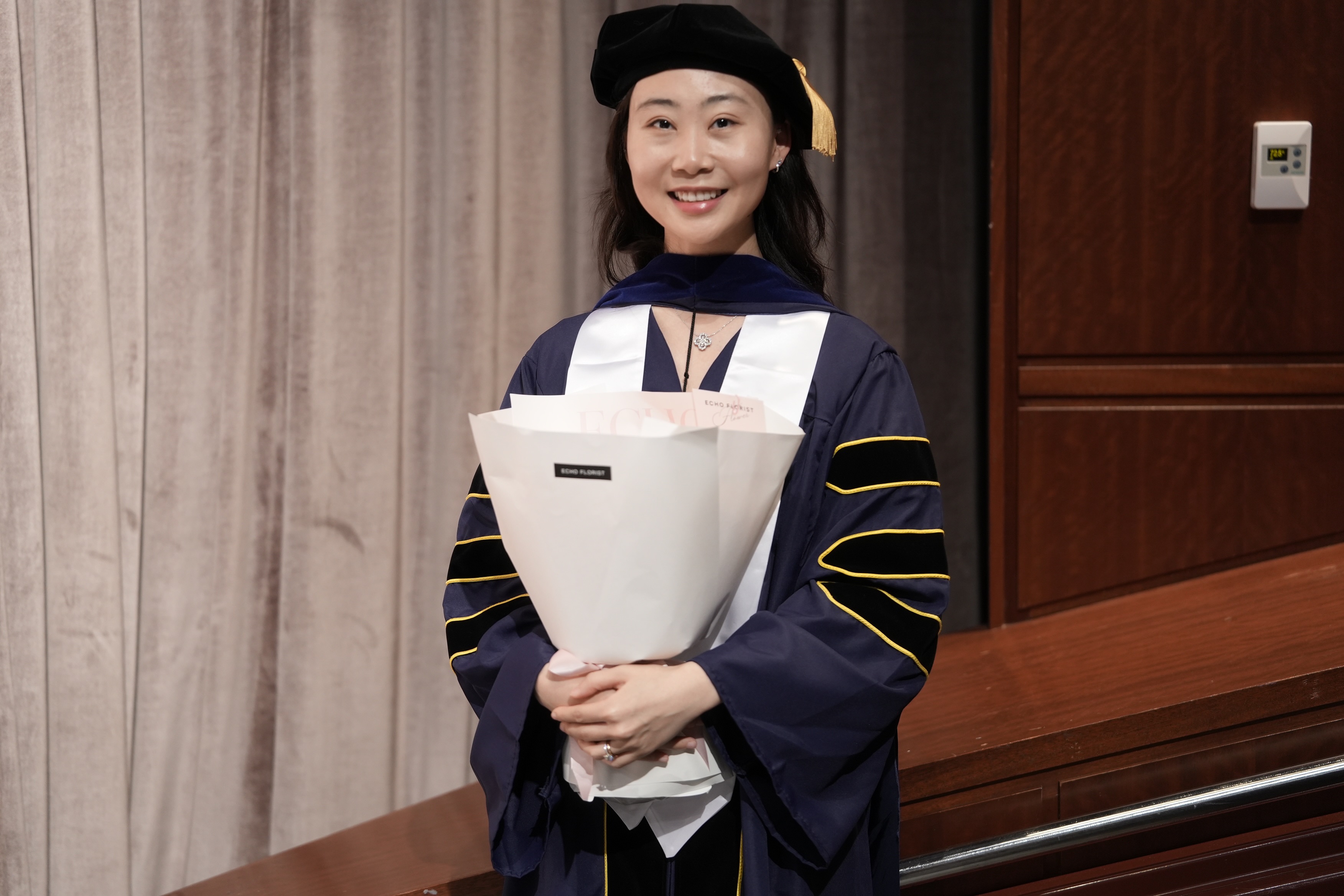The GW Engineering community takes pride in the continued achievements of its alumni as they make their mark across sectors. In academia, we’re excited to announce that Jingdi Chen, Ph.D. ’24, will be starting as a tenure-track assistant professor in the Department of Electrical and Computer Engineering (ECE) at the University of Arizona (Arizona) this fall.
Chen was inspired to pursue this career path by her desire to explore open-ended research questions and contribute new knowledge. Her journey began at Fudan University, where she earned a bachelor’s in mathematics, before coming to GW for a master’s in statistics and doctorate in electrical and computer engineering. Recently, she held a postdoctoral research position at Carnegie Mellon University to expand her technical expertise further.
“My time in GW’s ECE program was deeply rewarding and instrumental in shaping my career. The program offered a strong balance between foundational theory and applied research, which prepared me well for academic work,” said Chen.
In her doctoral research, Chen, advised by ECE Professor Tian Lan, led research on cutting-edge methods in reinforcement learning, multi-agent coordination, and cybersecurity. She shares that Lan’s guidance helped her develop the ability to think independently, communicate research clearly, and pursue ambitious goals. Her time as a teaching assistant and mentor also taught her the importance of meeting students where they are.
“I plan to carry these lessons into my teaching by focusing on clarity, engagement, and helping students connect theory to practical applications. GW’s supportive faculty and emphasis on student growth greatly influenced how I approach teaching,” Chen stated.
In her lab at Arizona, the Agents, Novelty, Nurturing, Incentives, Exploration (ANNIE) Research Group, Chen will lead students in building multi-agent systems capable of communication, coordination, and decision-making in complex environments. Her team takes an interdisciplinary approach to advancing the science of multi-agent learning and developing trustworthy and secure artificial intelligence technologies.
A particular focus of Chen’s lab will be using large-scale models to improve how agents interact with one another and adapt to dynamic conditions, with real-world applications in areas such as networking and autonomy.
Reflecting on her own journey to becoming a faculty member, Chen offered this advice to current GW Engineering ECE students considering a similar path: “Stay open to new ideas, seek mentorship, and build a strong foundation in both fundamental and emerging technologies. Taking the initiative in research and learning to communicate ideas effectively are key to success in academia.”


